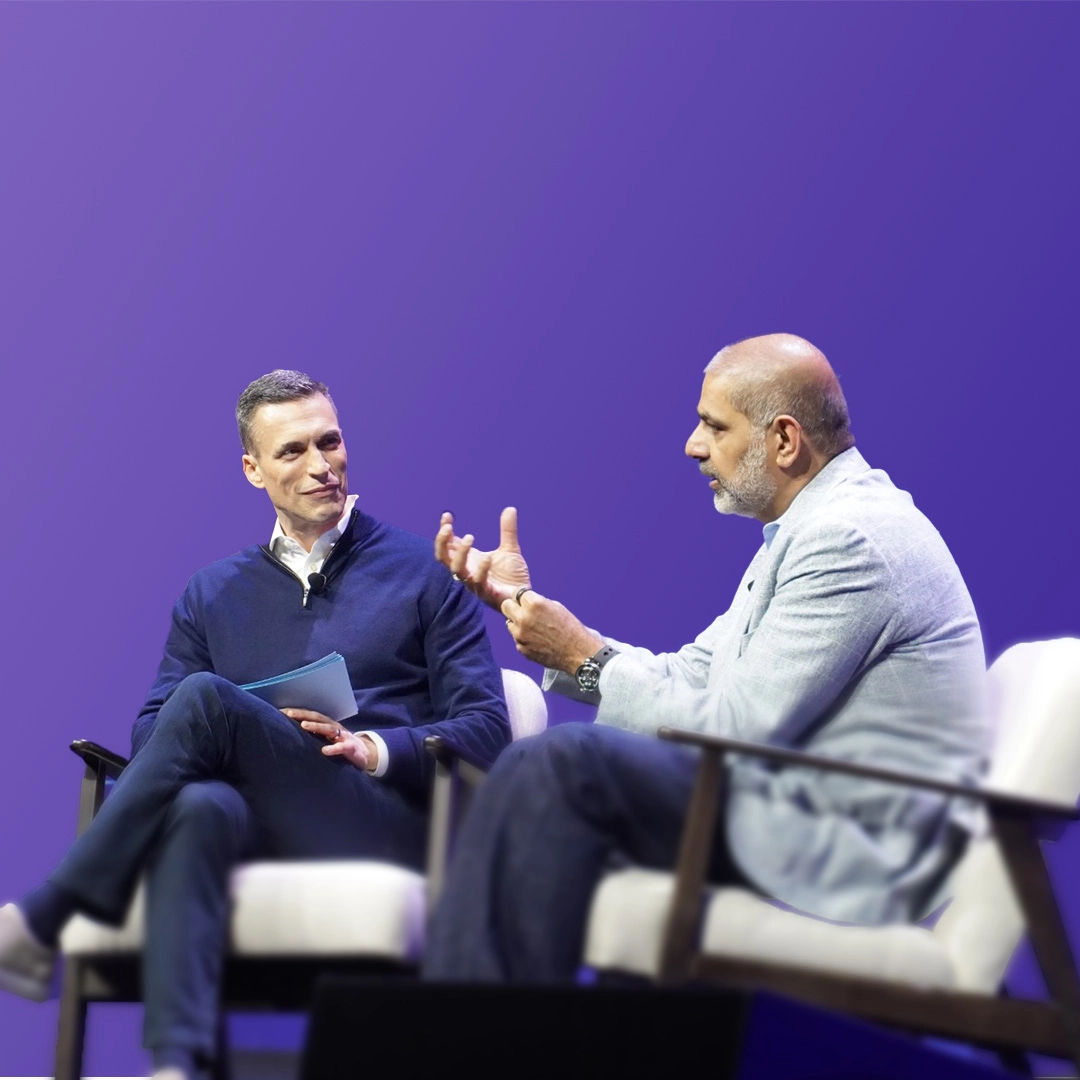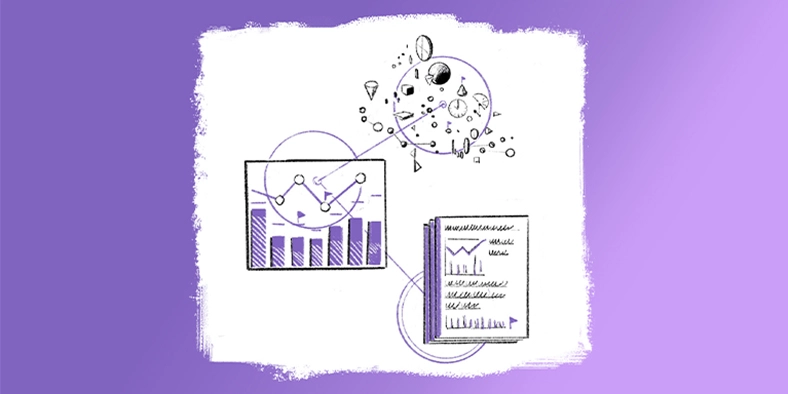Harvard Business School Professor Karim Lakhani doesn’t just have theories about AI transforming work—he studies how it’s actually happening.
In a groundbreaking paper called “The Cybernetic Teammate,” he and his co-authors showed how individuals working with AI can be as effective as entire teams working without it. He is also rapidly evolving Harvard’s MBA program for the age of AI, which includes the launch of a new required course called Data Science and AI for Leaders.
When I hosted Karim for a conversation at the Microsoft 365 Community Conference last month in Las Vegas, he raised a provocative question: will AI drive the marginal cost of expertise down toward zero? As AI democratizes access to specialized knowledge across domains, it follows that expertise will shift from being rare and costly to abundant and accessible. “This will dramatically impact the nature of our organizations and strategy,” he told me, “because what are companies but bundles of expertise? And all of us invest to become deep experts in a domain.”
Here’s our conversation about organizations and leadership in the AI era (edited and condensed for clarity).
It’s a pleasure to talk with one of my friends about where AI is going and what it means for leaders. Karim, I want to start with that “Cybernetic Teammate” study, done with Procter & Gamble. Could you give us the backstory?
KARIM LAKHANI: The institute I run at Harvard, the Digital Data Design Institute, is looking at generative AI like a new “drug” in the economy. We don’t know its efficacy, the right doses, the side effects, or the right diet to follow while using it. We don’t know how actual work will transform with the introduction of this technology, so we run the equivalent of “clinical trials”—randomized controlled trials.
Victor Aguilar, head of research and development for Procter & Gamble, wanted to understand how generative AI could radically transform the innovation process at P&G. In innovation, there’s often this interaction between R&D and commercial people: R&D comes up with the technical ideas, but the commercial team asks, “is there a market for this or not?” The best practice is to have them collaborate in a team.
We designed this study of 758 professionals as what we call a two-by-two design: We had commercial and marketing folks work on challenges given by their business leaders—one group working without AI and one with AI. We also tested individuals under the same conditions. Then we randomized who was in which treatment and had them solve their problems with those tools.
Let’s talk about the results. This is the study that showed an individual equipped with AI could perform at least as well as—and sometimes outperform—entire teams of people without AI. It’s a landmark finding. Can you tell us about that?
LAKHANI: What does a teammate provide? They provide you with functional expertise, help you with coordination, and give you a sense of camaraderie. We measured these three elements remotely using Microsoft Teams as the platform.
The first finding was that when you look at pure performance, the quality of the ideas being created, individuals with AI were as good as a team without AI—and often as good as a team with AI. That was remarkable from our perspective.
The other interesting thing we saw was that individuals without AI tended to veer toward their functional expertise: marketing people gave marketing-based solutions, R&D people offered R&D-based solutions. But individuals with AI produced balanced solutions—comparable to the balanced solutions we saw from teams. That was a big moment for us.
Were there any other surprises in how people used AI, reframed their work, or wanted to use it going forward?
LAKHANI: We had done various studies before showing the productivity effects of AI, in terms of both quality and time. The time compression was actually quite remarkable. Teams normally experience a time penalty [because coordination takes time]. But with AI, that time penalty disappeared.
That was a big surprise. Another surprise was how people felt while using AI. They reported more positive emotions and fewer negative ones as they were doing the work.
The big aha for us was that AI shifted from being a tool to a teammate. This is unprecedented. We now have intelligence and expertise on tap.
I imagine what’s on people’s minds is, “I get it. I understand where the technology is...but what does this mean for me? What do I do as a leader?” What advice might you have for the group?
LAKHANI: Do you remember debates about whether we should have Wi-Fi in our offices? I’m sure some of you participated in them. The question maybe went up to your boards. Or remember the question, “Should employees have browsers? Access to global information?”
Those things didn’t fundamentally change the nature of work. But intelligence on demand, expertise on demand—these technologies are about work itself. You need to drive as much organizational transformation as technical transformation. We often say it’s 30% tech, 70% organization. Staple yourselves to your HR teams. Or have Copilot teach you the things about HR that you should know. It creates great tutorials, as you know. That’s the first thing.
Second: People are worried—really worried—about these technologies. That’s part of the conversation you need to have. How do we have an abundance mindset around this? What are the capability unlocks? Again, these are things that technology leaders have not typically been asked about. But you need to own it and engage in a conversation with your leaders and teammates about it.
Third: This type of change has to come from the top. I came up in the era of Wired magazine and Fast Company in the 1990s, when the internet came to workplaces. Fast Company was all about change agents. But change agents get massacred in most corporations. Why? Because if there’s no top-down buy-in, the change agents die on the vine. The key for us here is to make sure our top leaders understand this and see AI as a work and business technology, not as an information technology. Leaders in companies need to “do AI” (use Copilot as a thought partner all the time, build their own agents) as much as they “talk AI.”
Is there any last concept or idea that you feel has been left unsaid?
LAKHANI: Well, if I was good at predicting the future, I would be in the stock market, not academia. I tend to be very much an empiricist: I’ll come in with a discovery mindset, we’ll run the experiment, and then we’ll get the facts. But I’d love to offer a framing around this intelligence view.
I decided to become an academic in the 1990s when I discovered open-source software. We’re at the same juncture now. This stuff works in practice, but our management theories or economic theories don’t know how to handle this kind of technology.
Think back to the ‘90s again, when the browser became available. What did the browser and the internet really do? Essentially, they lowered the marginal cost of information transmission. If you go on a Teams call today with a global or national team, you don’t think twice about all the videos that are coming in. Thirty years ago, every one of us would have needed a camera operator, a sound operator, a satellite truck uplink, and a downlink. This would be prohibitively expensive. But today, the marginal cost of information transmission has gone down to zero, and we can seamlessly connect with anyone or any device globally.
In this moment, we’re predicting the same thing for expertise: the marginal cost of expertise is going to zero.
The clinical trials with our collaborative partners (Boston Consulting Group and P&G) are pointing in this direction, and this will dramatically impact the nature of our organizations and strategies. Because what are companies but bundles of expertise? We have finance, marketing, sales, R&D, and brand. You have all this expertise. As that cost of expertise drops, what a company does—what all of our roles are—is all up for invention and reinvention.
The direction of this change is up to all of us. We can’t just be the receivers of it; we have to understand what’s happening and then set the direction for ourselves and our companies.
Listen to Karim Lakhani’s recent appearance on the WorkLab podcast. For more insights about AI and the future of work, subscribe to this newsletter



